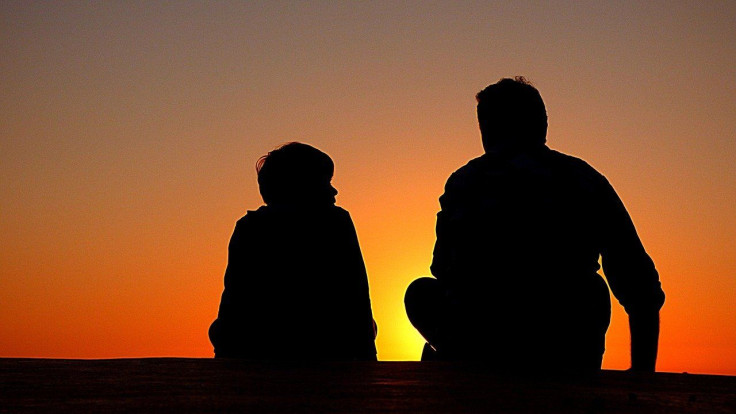'Hidden' Tragedy: More Than 140,000 US Children Lost A Caregiver To COVID-19 Pandemic
KEY POINTS
- COVID-19-related deaths claimed the lives of 142,637 children's primary or secondary caregivers
- The figure is from April 1, 2020, to June 30, 2021, alone
- The researchers found racial and ethnic disparities in the data
- This shows the need to include children's welfare in pandemic response
More than 140,000 children under the age of 18 have lost a parent or caregiver to the COVID-19 pandemic, a new study has found. The numbers show a "hidden and ongoing secondary tragedy" amid the global health crisis.
Most of the COVID-19 deaths have happened among adults and not children, the researchers of a new study published Thursday in Pediatrics said. While the focus has mostly been on reducing the burden of COVID-19 on adults, there is also a "tragic consequence" that adult deaths have had on children: losing parents or caregivers to the pandemic.
"UNICEF defines orphanhood as death of one or both parents," the researchers wrote. "The definition includes children losing one parent, because they have increased risks of mental health problems, abuse, unstable housing, and household poverty."
The researchers found that 142,637 children lost at least one parent, "custodial or other co-residing grandparent caregiver" to a COVID-19-related death from April 1, 2020, to June 30, 2021, the Centers for Disease Control and Prevention (CDC) noted in a news release.
Specifically, 120,630 U.S. children lost a primary caregiver from a COVID-19-associated death. A primary caregiver could be a parent or grandparent who provides the children's basic needs, housing and care.
Meanwhile, 22,007 lost a secondary caregiver to a COVID-19 associated death. A secondary caregiver could be a grandparent who provides housing, but not most of the kids' basic needs, the researchers explained.
Racial, Ethnic Disparities
The researchers also found "significant" racial and ethnic disparities in the caregiver deaths, with the risk of loss being 1.1 to 4.5 times higher in children of racial and ethnic minorities compared to non-Hispanic White children.
As the CDC explained, although white people comprise 61% of the U.S. population and racial and ethnic minorities account for only 39%, the numbers show that children of racial and ethnic minorities are actually more likely to lose a caregiver.
In fact, children of racial and ethnic minorities comprise 65% (91,256 children) of those who lost a primary caregiver while non-Hispanic white children comprise 35% (51,381).
"Compared to white children, American Indian/Alaska Native children were 4.5 times more likely to lose a parent or grandparent caregiver, Black children were 2.4 times more likely, and Hispanic children were nearly 2 times (1.8) more likely," the CDC noted.
1 in 500 U.S. children has experienced #COVID19-associated orphanhood, and children from racial and ethnic minority groups are disproportionately affected. COVID-19 vaccines can help prevent caregiver death. Learn more about this CDC-led study: https://t.co/7MRTcYddu5. pic.twitter.com/viUjgLBJFW
— CDC (@CDCgov) October 7, 2021
The researchers also found that California, Texas and New York, which are the states with the largest populations, have the highest number of children who are facing the loss of a primary caregiver from a COVID-associated death.
"The highest burden for children of COVID-19-associated death of primary caregivers occurred in Southern border states for Hispanic children, Southeastern states for Black children, and in states with tribal areas for American Indian/Alaska Native populations," the researchers wrote.
'Hidden and Ongoing Tragedy'
Calling this a "hidden and ongoing second tragedy" as a result of the pandemic, the CDC stressed the need to care for the children as an important part of the pandemic response and beyond.
So far, the Emergency Response priorities include vaccination, testing, mitigation, contact tracing and disease management, the researchers noted, and they suggest adding a "Care for Children" response, which has a three-pronged approach to address the kids' needs and ensure their protection.
"Children facing orphanhood as a result of COVID is a hidden, global pandemic that has sadly not spared the United States," Susan Hillis, study lead author and CDC researcher, said in the news release.
In July, for instance, a study in The Lancet found that more than 1.5 million children across the world lost a primary or secondary caregiver in the first 14 months of the pandemic alone. In India, the pandemic deaths have reportedly triggered an "orphan crisis."
"The death of a parental figure is an enormous loss that can reshape a child's life. We must work to ensure that all children have access to evidence-based prevention interventions that can help them navigate this trauma, to support their future mental health and wellbeing," Nora D. Volkow, MD, director at National Institute on Drug Abuse, noted in the CDC news release.
"At the same time, we must address the many underlying inequities and health disparities that put people of color at greater risk of getting COVID-19 and dying from COVID-19, which puts children of color at a greater risk of losing a parent or caregiver and related adverse effects on their development," Volkow added.

© Copyright IBTimes 2024. All rights reserved.






















